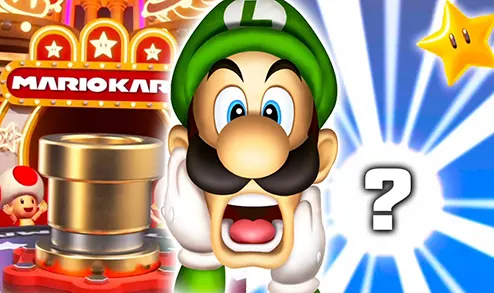 Although Nintendo removed the loot box elements of Mario Kart Tour last October over claims that it deceptively lured underage players, the company now faces a proposed class action. The 25-page complaint claims that the company used underhanded means to convince players to make in-game purchases. The filing also claims that the loot boxes contained prizes and rewards that players already had or did not need.
Although Nintendo removed the loot box elements of Mario Kart Tour last October over claims that it deceptively lured underage players, the company now faces a proposed class action. The 25-page complaint claims that the company used underhanded means to convince players to make in-game purchases. The filing also claims that the loot boxes contained prizes and rewards that players already had or did not need.
Making In-Game Purchases is Obligatory to Advance in the Mario Kart Tour Game, the Suit Claims
The complaint was initially filed in California state in March, but on May 17, it moved to federal court. According to the case, Nintendo of America, Inc. unlawfully declined to refund underage individuals, who made in-game purchases. The filing also claims that the company made in-game purchases essential for players to progress in the game, stimulating addictive behavior similar to gambling.
The suit alleges that advancing through the Mario Kart Tour game is time-consuming and invariably associated with making in-game purchases. Players buy in-game currency called “Rubies”. Those who pay five Rubies can draw one random item that will help them advance in the game. According to the filing, players can pay 45 Rubies to fire the “Spotlight Pipe” ten times and draw ten different in-game items. In other words, players pay between $2.60 and $3.32 for the opportunity to draw a single item and from $23.40 to $29.84 to purchase ten items at a time.
The suit describes the game in detail, explaining that a player can collect no more than 30 coins per race. The filing also claims that the game was intentionally designed this way to induce players to buy in-game currency or rotating gift sets. The price of a pack of in-game currency can reach $70.
Nintendo’s Mario Kart Tour Game Includes Gambling and is Not Suitable for Children
The case also alleges that players are not given information about the gifts they will receive. The filing also claims that the chance of drawing a valuable item is very slim, stimulating players to continue making in-game purchases. Besides, the suit alleges that Mario Kart Tour is more of a gambling game, which is not appropriate for minors.
The lawsuit also alleges that if players knew the odds of drawing a given valuable item, they would never spend even a cent on the “Spotlight Pipes” loot box. According to the filing, such games are mostly played by underage individuals, who are susceptible to buying such in-game items.
The Federal Trade Commission (FTC) claims that the game uses various “dark patterns” to persuade players to make in-game purchases. The “grinding” pattern makes it almost impossible for players to progress, so they have to make an in-app purchase to advance in the game. “Play to Skip” is another popular dark pattern that requires players to make an in-game purchase in order to skip tedious activities. Mario Kart Tour also uses the so-called “artificial scarcity”, which makes players believe that a given valuable item will be available for a limited period.